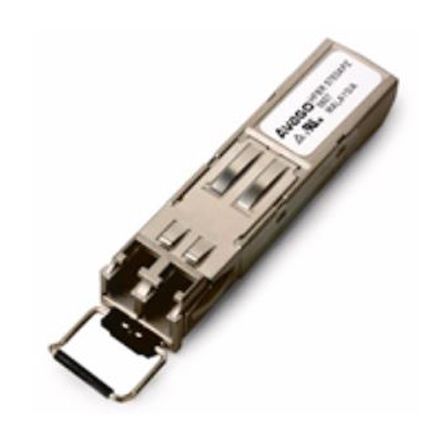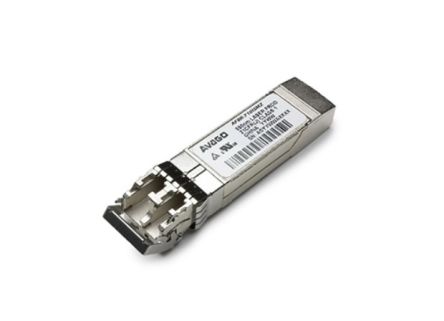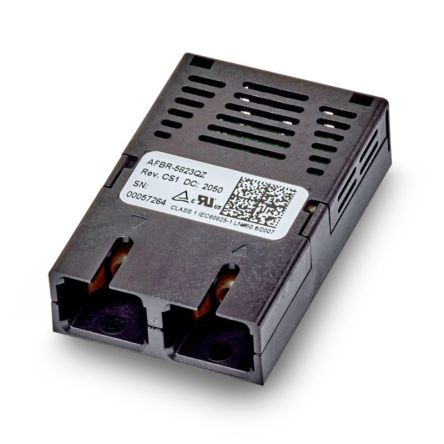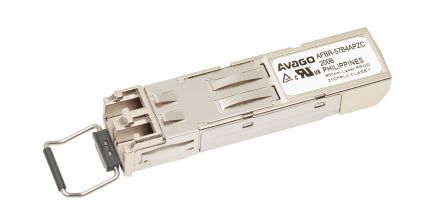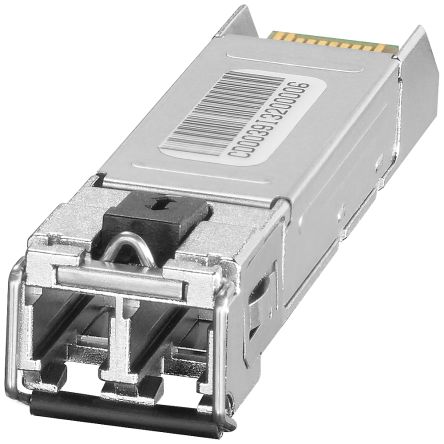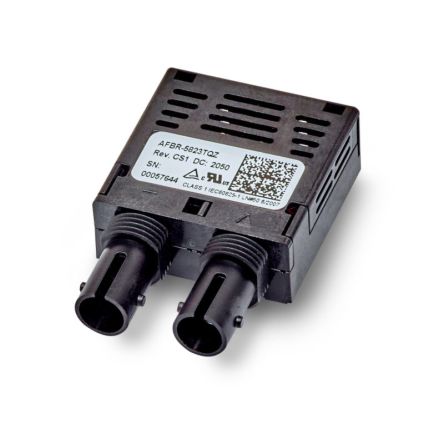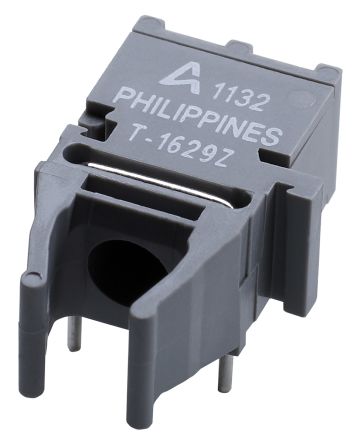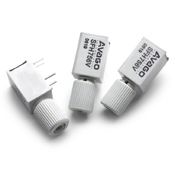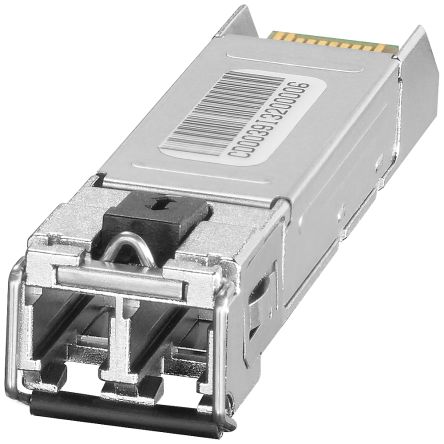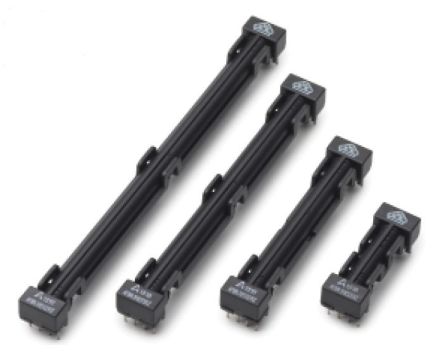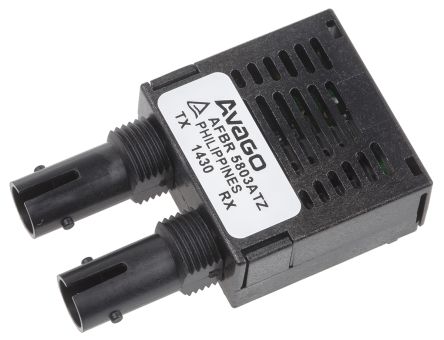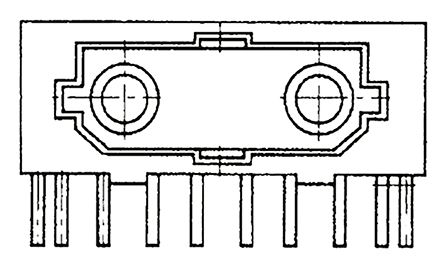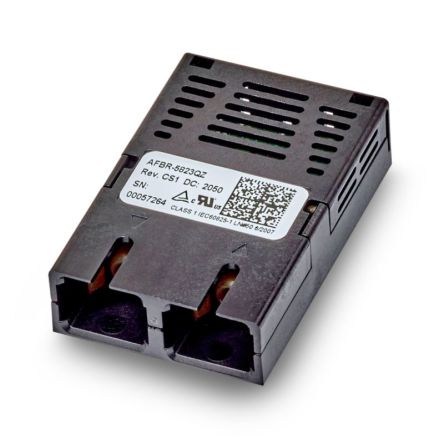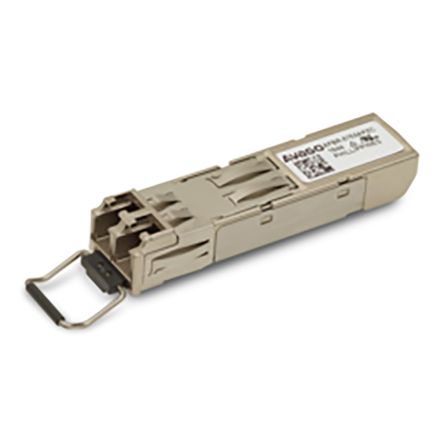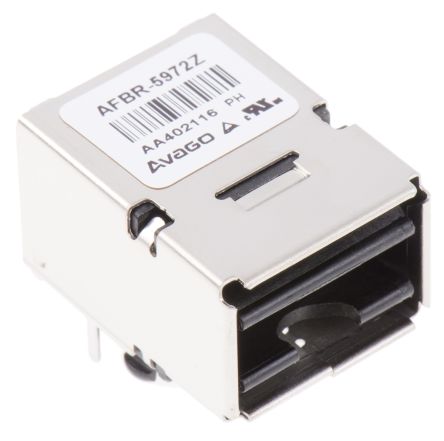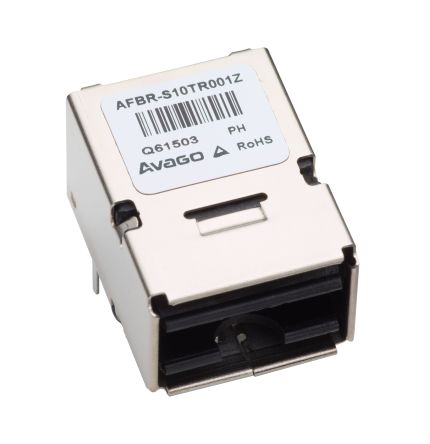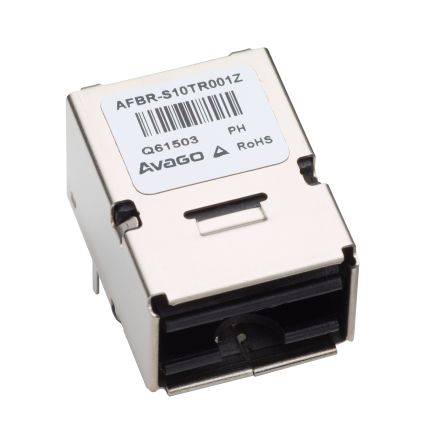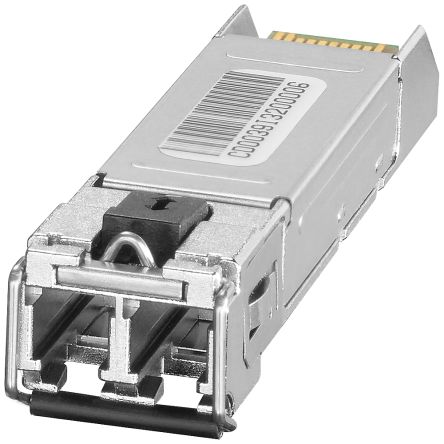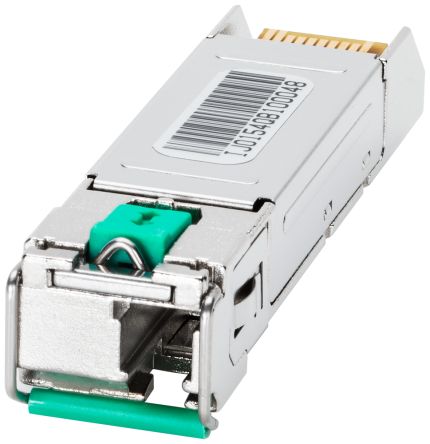- Automation & Control Gear
- Cables & Wires
- Enclosures & Server Racks
- Fuses & Circuit Breakers
- HVAC, Fans & Thermal Management
- Lighting
- Relays & Signal Conditioning
- Switches
- Batteries & Chargers
- Connectors
- Displays & Optoelectronics
- ESD Control, Cleanroom & PCB Prototyping
- Passive Components
- Power Supplies & Transformers
- Raspberry Pi, Arduino, ROCK, STEM Education & Development Tools
- Semiconductors
Fibre Optic Transceivers
Fibre optic transceivers are devices that uses fibre optic technology to receive and send data. Unlike fibre optic receivers or fibre optic transmitters, fibre optic transceivers include both transmission and receiver in the same component. However, both the transmitter and receiver have their own circuitry so they can handle transmissions in both directions.
How do fibre optic transceivers work?
Fibre optic transceivers work by facilitating photoelectric conversion. The transmitter end takes in and converts electrical signals into optical signals before passing them on through the module channel into the receiver end. The receiver then converts optical signals back into electrical signals for the computer to understand.
Types and uses of fibre optic transceivers
Fibre optic transceivers are critical building blocks in a fibre optic network, which conveys information across communication channels for optical systems. There are many kinds of models of transceivers available, which range in performance, size and price. Common features for transceivers include clock recovery, stand alone, pigtail, and input and output choices.
